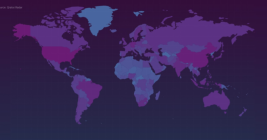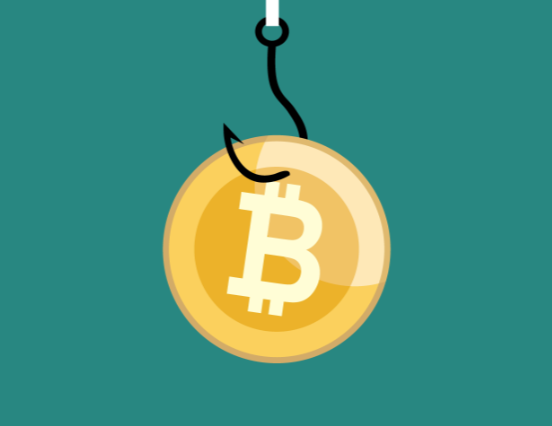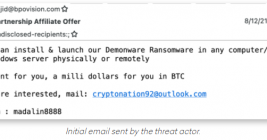Yearly Archives: 2021
Microsoft Patch Tuesday, September 2021 Edition
Microsoft today pushed software updates to plug dozens of security holes in Windows and related products, including a vulnerability that is already being exploited in active attacks. Also, Apple has issued an emergency update to fix a flaw that’s reportedly been abused to install spyware on iOS products, and Google’s got a new version of Chrome that tackles two zero-day flaws. Finally, Adobe has released critical security updates for Acrobat, Reader and a slew of other software.
KrebsOnSecurity Hit By Huge New IoT Botnet “Meris”
On Thursday evening, KrebsOnSecurity was the subject of a rather massive (and mercifully brief) distributed denial-of-service (DDoS) attack. The assault came from “Meris,” the same new “Internet of Things” (IoT) botnet behind record-shattering attacks against Russian search giant Yandex this week and internet infrastructure firm Cloudflare earlier this summer.
Microsoft: Attackers Exploiting Windows Zero-Day Flaw
Microsoft Corp. warned Tuesday that attackers are exploiting a previously unknown vulnerability in Windows 10 and many Windows Server versions to seize control over PCs when users open a malicious document or visit a booby-trapped website. There is currently no official patch for the flaw, but Microsoft has released recommendations for mitigating the threat.
“FudCo” Spam Empire Tied to Pakistani Software Firm
In May 2015, KrebsOnSecurity briefly profiled “The Manipulaters,” the name chosen by a prolific cybercrime group based in Pakistan that was very publicly selling spam tools and a range of services for crafting, hosting and deploying malicious email. Six years later, a review of the social media postings from this group shows they are prospering, while rather poorly hiding their activities behind a software development firm in Lahore that has secretly enabled an entire generation of spammers and scammers.
Gift Card Gang Extracts Cash From 100k Inboxes Daily
Some of the most successful and lucrative online scams employ a “low-and-slow” approach — avoiding detection or interference from researchers and law enforcement agencies by stealing small bits of cash from many people over an extended period. Here’s the story of a cybercrime group that compromises up to 100,000 email inboxes per day, and apparently does little else with this access except siphon gift card and customer loyalty program data that can be resold online.
15-Year-Old Malware Proxy Network VIP72 Goes Dark
Over the past 15 years, a cybercrime anonymity service known as VIP72 has enabled countless fraudsters to mask their true location online by routing their traffic through millions of malware-infected systems. But roughly two week ago, VIP72’s online storefront — which sold access to more than 30,000 compromised PCs — simply vanished.
Man Robbed of 16 Bitcoin Sues Young Thieves’ Parents
In 2018, Andrew Schober was digitally mugged for approximately $1 million worth of bitcoin. After several years of working with investigators, Schober says he’s confident he has located two young men in the United Kingdom responsible for developing a clever piece of digital clipboard-stealing malware that let them siphon his crypto holdings. Schober is now suing each of their parents in a civil case that seeks to extract what their children would not return voluntarily.
Wanted: Disgruntled Employees to Deploy Ransomware
Criminal hackers will try almost anything to get inside a profitable enterprise and secure a million-dollar payday from a ransomware infection. Apparently now that includes emailing employees directly and asking them to unleash the malware inside their employer’s network in exchange for a percentage of any ransom amount paid by the victim company.
T-Mobile: Breach Exposed SSN/DOB of 40M+ People
T-Mobile warned Monday that a data breach has exposed the names, date of birth, Social Security number and driver’s license/ID information of more than 40 million current, former or prospective customers. The acknowledgment came less than 48 hours after millions of the stolen T-Mobile customer records went up for sale in the cybercrime underground.













